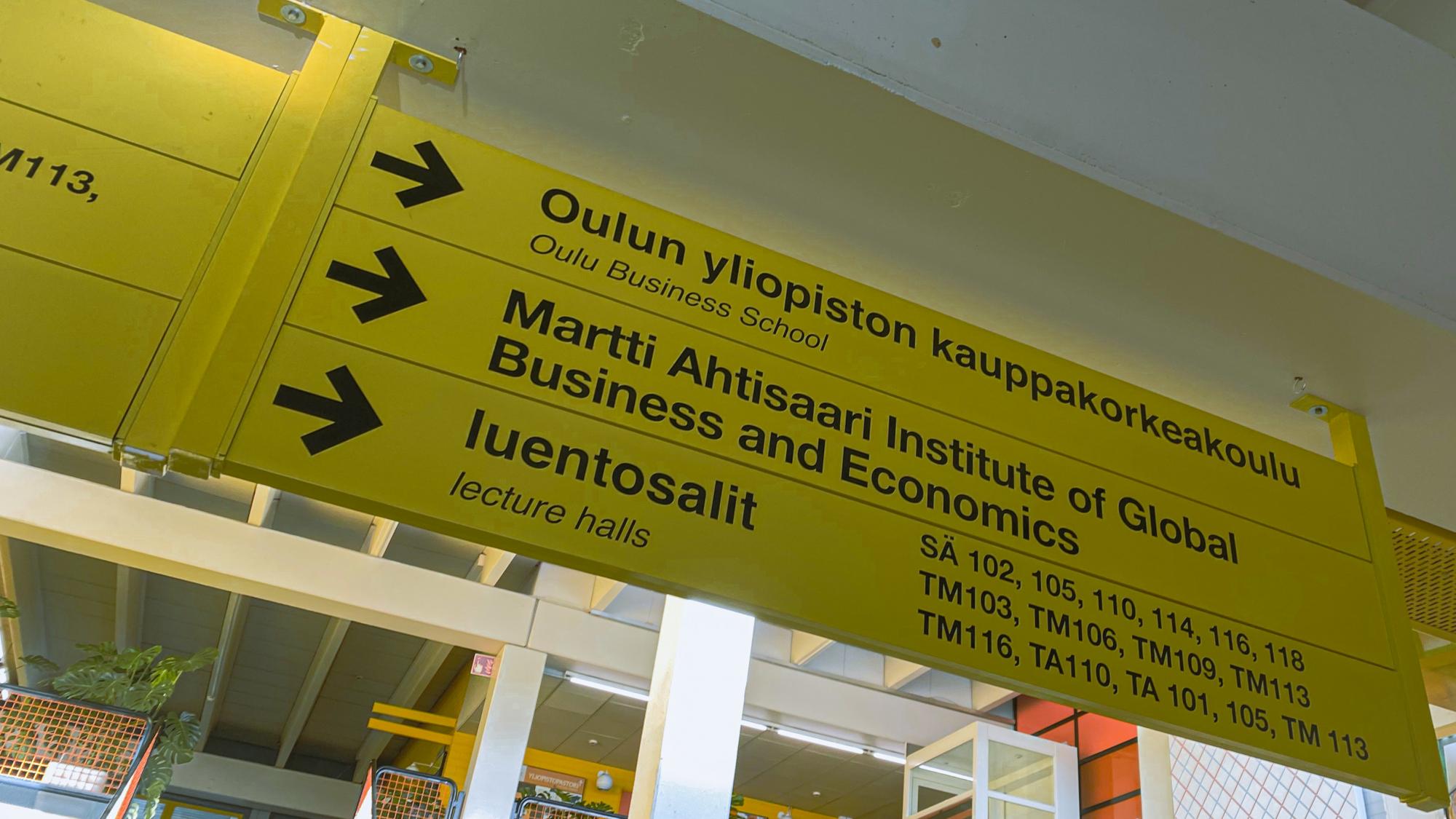Beyond learning economic theories and choosing UniOulu for masters
As I am entering my second study period at the University of Oulu, I would like to share two key takeaways from the master’s degree programme in Economics and how one should actually approach studying the field.

My previous (bachelor’s) studies focused mostly on understanding economic theories with some mathematical and econometric applications. During my very first study period here at the University of Oulu as a master’s student, I realized how these theories are just frameworks for understanding people, businesses, markets and governments.
You do need to go through a lot of quantitative courses and understand how to quantify economic phenomena, but the first step is always about observing economic behaviour in society and how things change over time. Cultural differences and demographics matter too. You can never really rely on a specific theory or quantitative method for economic research and policymaking.
Teachers here guide you through doing your own research and choosing quantitative methods effectively. It is noteworthy to mention that quantitative methods don’t always answer your research questions.
Economics is all about critical thinking and getting the most out of scarce resources for all. Plus, human behaviour is never completely rational.
Even during the Mathematical Economics course, the teacher kept emphasizing the fact that math is just one of the tools to help you understand and build up theories.
Another fun fact about the programme structure is that it is a mixed blend of applied economics and finance. You get to choose various courses from the fields of finance as well as accounting as they play a significant role in market research. In the upcoming study periods, I am looking forward to taking courses like Advanced Financial Statement Analysis, Asset Pricing, and Portfolio Management.

Grades mean nothing unless you know how to get a direct outcome out of your courses / apply them in real life. But you do need to pass them!
In economic research and analysis, it is most important to have the ability to ask questions about certain phenomena and find effective ways to answer them.
Even if you’re looking for a job (at least in Finland) outside academia or research, recruiters mainly require you to have certain skill sets, experiences and previously completed projects. A good way to verify this is to go to LinkedIn and search for analyst jobs in Finland.
The best part of studying here is that teachers are very responsive towards your concerns, and they are always open to new ideas. On the first day of my orientation week, I shared my research interests with my programme coordinator, and she advised me on whom to reach out to for possible research collaborations according to those specific topics.
Although I am at the earliest stage of my studies, the responses were always positive when I wanted to collaborate, and the only concerns revolved around my motivation towards the topic are my ability to think analytically and apply certain econometric methods (using R, STATA, or EViews) for data analysis. In short, knowing how to get the job done is important.

The overall journey with Oulu university has been quite smooth and positive for me so far.
During the January 2021 application period, I was able to contact a student ambassador who guided me throughout the application process. I ended up getting a study place along with a scholarship and started my studies in the later academic year (due to the Covid-19 pandemic lockdown).
My target after completing my bachelor’s in Economics from Bangladesh was to continue my studies in the field from a place that would teach me the direct application of previously acquired knowledge in real life.
After completing one entire study period here, I realized that this Economics master’s programme is exactly how I expected it to be. It gave me the opportunity to see economics through the lens of European economic researchers. I believe it’s preparing me to become more than just an analytical thinker.
About the author
Tarif Tahmeed Khan, from Bangladesh, is a first-year international master’s degree student in Economics at the University of Oulu. His current research interests include online labour markets, migration, supply chains, and the circular economy. Apart from studies, he likes music, travelling, video games and photography.